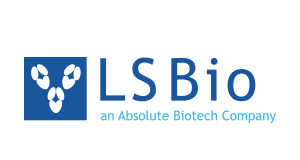EPCAM Antibody (clone VU-1D9, FITC)
EPCAM Antibody (clone VU-1D9, FITC)
Artikelnummer
LIFLS-C57528-25
Verpackungseinheit
25 µg
Hersteller
LSBio
Verfügbarkeit:
wird geladen...
Preis wird geladen...
Clone: VU-1D9
Specificity: Recognizes epithelial cell adhesion molecule (Ep-CAM), a ~34 kD cell surface antigen otherwise known as CD326, MOC31 or Ber-EP4. CD326 is a type 1 transmembrane glycoprotein, expressed on the basolateral cell membrane of the majority of epithelial tissues, with the exception of adult squamous epithelium, hepatocytes and gastric epithelial cells. Ep-CAM expression has been reported to be a possible marker of early malignancy, with expression being increased in tumor cells. Ep-CAM expression has been reported to be a possible marker of early malignancy, with expression being increased in tumor cells, and de novo expression being seen in dysplastic squamous epithelium.
Antibody Modification: FITC
Presentation: PBS, 0.09% Sodium Azide, 1% BSA
Immunogen: HG9 cell line (small cell lung carcinoma).
Gene: EPCAM
Description: EPCAM antibody LS-C57528 is an FITC-conjugated mouse monoclonal antibody to human EPCAM. Validated for Flow.
Usage: Flow Cytometry: Use 10 ul of the suggested working dilution to label 1x10^6 cells in 100 ul. Method sheets are available on request. The applications listed have been tested for the unconjugated form of this product. Other forms have not been tested.
Synonyms: EPCAM, 323/A3, ACSTD1, 17-1A, CD326, EGP, EGP34, Epithelial glycoprotein, GA733-2, HNPCC8, Ep-CAM, ESA, HEGP314, KS 1/4 antigen, KS1/4, KSA, M1S2, MIC18, MK-1, MH99, TROP1, TACST-1, TACSTD1, CD326 antigen, CO-17A, DIAR5, EGP-2, EGP314, EGP40, Epithelial glycoprotein 314, HEA125, Ly74, M4S1
Recommended Storage: Store at 4°C or at -20°C. Store undiluted. Avoid freeze-thaw cycles. Protect from light. Microcentrifugation recommended if solution contains precipitate.
Concentration: 0.1 mg/ml
Specificity: Recognizes epithelial cell adhesion molecule (Ep-CAM), a ~34 kD cell surface antigen otherwise known as CD326, MOC31 or Ber-EP4. CD326 is a type 1 transmembrane glycoprotein, expressed on the basolateral cell membrane of the majority of epithelial tissues, with the exception of adult squamous epithelium, hepatocytes and gastric epithelial cells. Ep-CAM expression has been reported to be a possible marker of early malignancy, with expression being increased in tumor cells. Ep-CAM expression has been reported to be a possible marker of early malignancy, with expression being increased in tumor cells, and de novo expression being seen in dysplastic squamous epithelium.
Antibody Modification: FITC
Presentation: PBS, 0.09% Sodium Azide, 1% BSA
Immunogen: HG9 cell line (small cell lung carcinoma).
Gene: EPCAM
Description: EPCAM antibody LS-C57528 is an FITC-conjugated mouse monoclonal antibody to human EPCAM. Validated for Flow.
Usage: Flow Cytometry: Use 10 ul of the suggested working dilution to label 1x10^6 cells in 100 ul. Method sheets are available on request. The applications listed have been tested for the unconjugated form of this product. Other forms have not been tested.
Synonyms: EPCAM, 323/A3, ACSTD1, 17-1A, CD326, EGP, EGP34, Epithelial glycoprotein, GA733-2, HNPCC8, Ep-CAM, ESA, HEGP314, KS 1/4 antigen, KS1/4, KSA, M1S2, MIC18, MK-1, MH99, TROP1, TACST-1, TACSTD1, CD326 antigen, CO-17A, DIAR5, EGP-2, EGP314, EGP40, Epithelial glycoprotein 314, HEA125, Ly74, M4S1
Recommended Storage: Store at 4°C or at -20°C. Store undiluted. Avoid freeze-thaw cycles. Protect from light. Microcentrifugation recommended if solution contains precipitate.
Concentration: 0.1 mg/ml
| Artikelnummer | LIFLS-C57528-25 |
|---|---|
| Hersteller | LSBio |
| Hersteller Artikelnummer | LS-C57528-25 |
| Verpackungseinheit | 25 µg |
| Mengeneinheit | STK |
| Reaktivität | Human |
| Klonalität | Monoclonal |
| Methode | Flow Cytometry |
| Isotyp | IgG1 |
| Human Gene ID | 4072 |
| Wirt | Mouse |
| Konjugat | Conjugated, FITC |
| Produktinformation (PDF) |
|
| MSDS (PDF) |
|

 English
English







